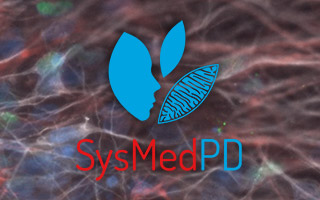New EU research project SysMedPD joins forces between universities’ research facilities and biopharmaceutical companies
New EU research initiative aims to develop drugs to slow down the progression of Parkinson’s disease
Parkinson’s disease (PD) is a progressive neurological disorder that is increasingly prevalent with age. After Alzheimer’s disease, PD is the second most common neurodegenerative disease and its prevalence will continue to grow as the population ages. More than one million people with PD live in Europe today and this number is forecast to double by 2030. Currently, the associated European cost estimated at €13.9 billion annually.
With the start of SysMedPD on 1st December 2015, a new EU research project sets out to further explore and identify novel drug candidates capable of slowing down the progression of neurodegeneration in the subset of PD patients with overt mitochondrial dysfunction. The research during SysMedPD will specifically focus on monogenic forms of PD that involve mitochondrial abnormalities as a primary or secondary phenomenon, which is estimated to account for 10% to 20% of the total number of PD patients corresponding to 1-2 million people.
Equipped with a budget of €5.9 million, the SysMedPD consortium’s objectives are to leverage national but especially European investments in the systems biomedicine sector, to improve means for PD detection and therapy development by developing tools and approaches, and to commercialize the project results so the society as a whole can benefit from the results. Although there are several existing investments in the systems biomedicine in the EU, many of those investments have not yet been leveraged due to the high costs of assays. However, screenings of large compound libraries derived from nature and synthetic chemistry, are crucial on the path to identifying novel drugs. This is where SysMedPD comes in: ‘Current therapies of Parkinson’s disease are only symptomatic. We are very excited about the SysMedPD consortium because its goal is to develop new drugs based on the mechanisms of PD. This requires interdisciplinary cooperation from clinicians to engineers to computational biologists’, explains Rudi Balling, Coordinator of SysMedPD and Director of the Luxembourg Centre for Systems Biomedicine.
As PD patients are five times more likely to require nursing home care and this care costs about five times more than the average nursing home care, successful development of drugs slowing PD-progression would not only lead to an increase in the quality of life of patients, but will also lead to health care cost savings. There will be a subsequent economic impact for companies developing drugs for PD, as the miniaturization of cell culture and metabolomics assay developed within SysMedPD will reduce the associated costs.
The SysMedPD partners can build on the scientific expertise of an outstanding consortium of complementary academic groups as well as biopharmaceutical companies with longstanding expertise in the field of mitochondrial medicine and drug testing. The SysMedPD consortium will come together on the January 7 and 8 in Luxembourg to officially kick off the project’s activities.
As managing partner Eurice will support the consortium of SysMedPD in the overall project management, IPR and communication activities. With its long-standing experience in the management of EU funded research projects the Eurice team will thus contribute to the smooth and successful implementation of the project.
Your Contact
Corinna Hahn
European Research and Project Office GmbH
Tel.: +49 681 95923362
Email
Tags: Horizon 2020

